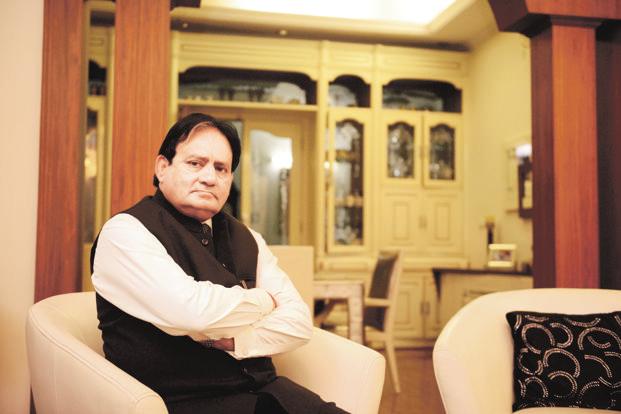 Education Minister Naftali Bennett at a meeting of his party in the Knesset, December 12, 2016. Emil Salman
Education Minister Naftali Bennett at a meeting of his party in the Knesset, December 12, 2016. Emil Salman
Bennett: Education reform will get rid of current cultural censorship in Israel
Bennett set to appoint first Haredi to higher education council
Who benefits from Bennett’s Jewish studies program for Israeli schools?
Israeli public schools to teach ‘Jewish agriculture’ to strengthen students’ ‘Zionist identity’
In the past, when the racism of Habayit Hayehudi MK Bezalal Smotrich was too obvious, his party chairman, Education Minister Naftali Bennett, tried to distinguish himself from the waves of Smotrich-fanned hatred. This happened mainly on social media, but the veiled objection, once every six months, was part of the education minister’s disguise, garbed in his professional suit when talking about math, English and Judaism. No longer. After Bennett accepted Smotrich’s proposal to bar the anti-occupation NGO Breaking the Silence from schools, every parent should understand that secular public education is being made subservient to the extremist ideology of the rabbis of the Orthodox far-right Tkuma faction of Bennett’s party.
Education at its core is the encounter between people, opinions and experiences. A complex game of points of view can, at magical moments, produce a multi-dimensional identity, sometimes even a critical perspective. Not only is the commissar of education not interested in these goals, he considers them dangerous. The basic obligation of the schools – certainly in the secular system – to reflect and relate to a variety of opinions is a joke to him; he prefers the ever-more-extreme single dimension of Orthodox education. Make no mistake: Bennett is advancing an educational model that is closed off to thinking and questioning. No tweet about mathematics can blur this. This is how to prepare the next generation of voters.
Apparently Bennett’s instructions to schools only increased the appeal of Breaking the Silence, as the NGO continued to get invitations to visit schools. The attempt to bar from the schools an organization “whose activities challenge the very legitimacy of state bodies,” such as the Israel Defense Forces and the courts (who exactly was it who said that a bulldozer should be used on the court?) was met with responses like that of Tel Aviv’s Tichonet High School principal Ram Cohen. He invited the group, arguing that Breaking the Silence objects to the government’s policy, which dictates the IDF’s actions. (The group, founded by IDF veterans, exposes claims of army misconduct in the territories.)
In a mixture of boastfulness and indifference, Bennett and Smotrich now want to amend the National Education Law from 1953 – the law that replaced the system of different “streams” in Israeli education and is considered one of the most fundamental in Israeli education in the pre-nationalist period. Not only do they want to add a clause whereby schools must “educate toward significant service in the IDF” (because education in and itself is legitimate only if it does this?) and to “preserve the status and honor of the IDF in Israeli society” (under any conditions and for all eternity?), but mainly to block Breaking the Silence because they say it is “active against IDF soldiers in Israel and abroad.” When you can’t defend an action, you are left with attacking how it is perceived.
That is a continuation of attempts in recent years to muzzle this organization, to the applause of Yesh Atid leader MK Yair Lapid, Bennett’s erstwhile “bro”, and from Kulanu MK Merav Ben Ari, perhaps his future niece. Such a toxic brew of arrogance and ethno-centrism has not been seen here since the passing of the bill to legalize illegal outposts and the UN Security Council resolution that came in its wake.
Bennett will not understand that the education system has been entrusted to him temporarily and therefore his obligation is to respect opinions different from those in his party. Disdain for the principles of pluralism has become one of the hallmarks of his term, as exemplified among other things by the new civics text book, increased funding to Judaic studies (channeled mainly to centers headed by people close to Habayit Hayehudi), the exclusion from the curriculum of the novel “Borderline,” which depicts an affair between a Jewish woman and an Arab man, the dismissal of the ministry’s chief scientist and the shelving of plans to look into racism.
The likelihood that Education Ministry officials will suddenly show professional responsibility seems slim. In such a situation parents can rely only on themselves – and demand that the secular school system not conduct itself like a branch of Habayit Hayehudi. In light of the unequal balance of power, there is no certainty that all the struggles will succeed, but it is even more certain that parents cannot afford to surrender without a fight. It is they who remain the guardians of the state.
read more: http://www.haaretz.com/israel-news/1.761724
[“source-ndtv”]













